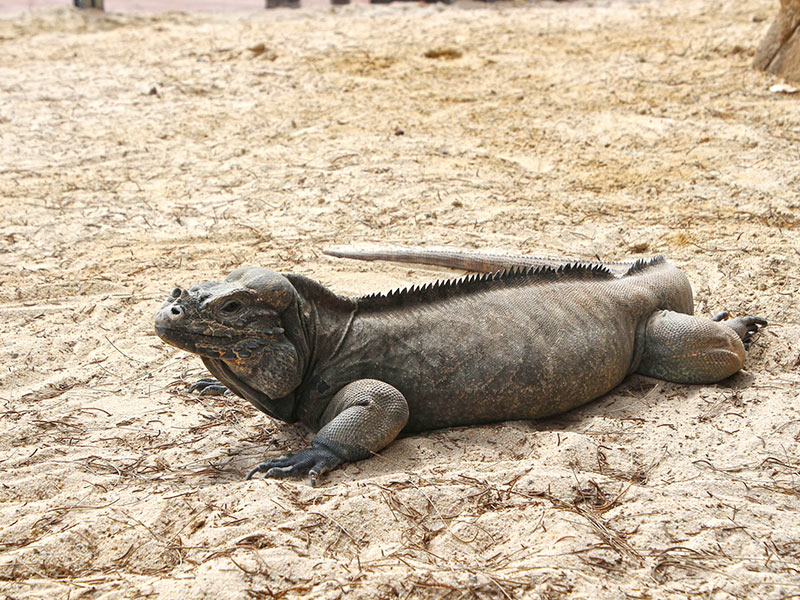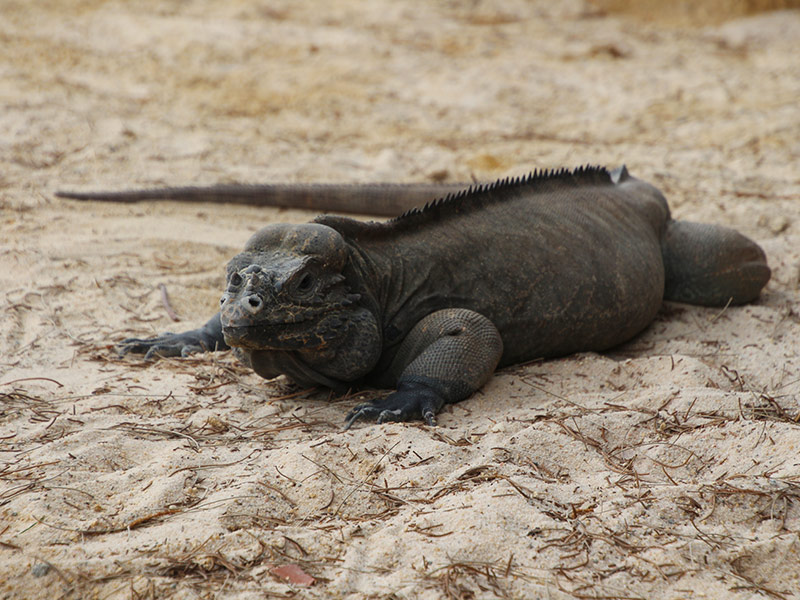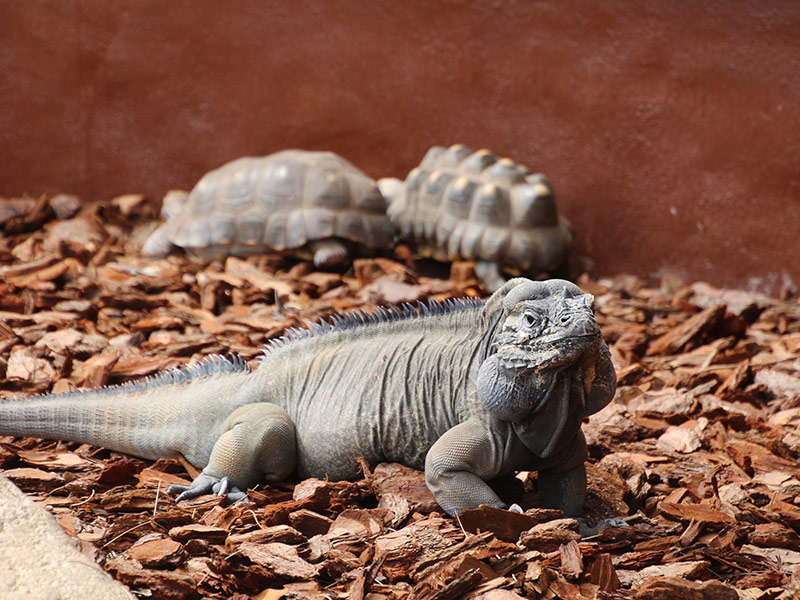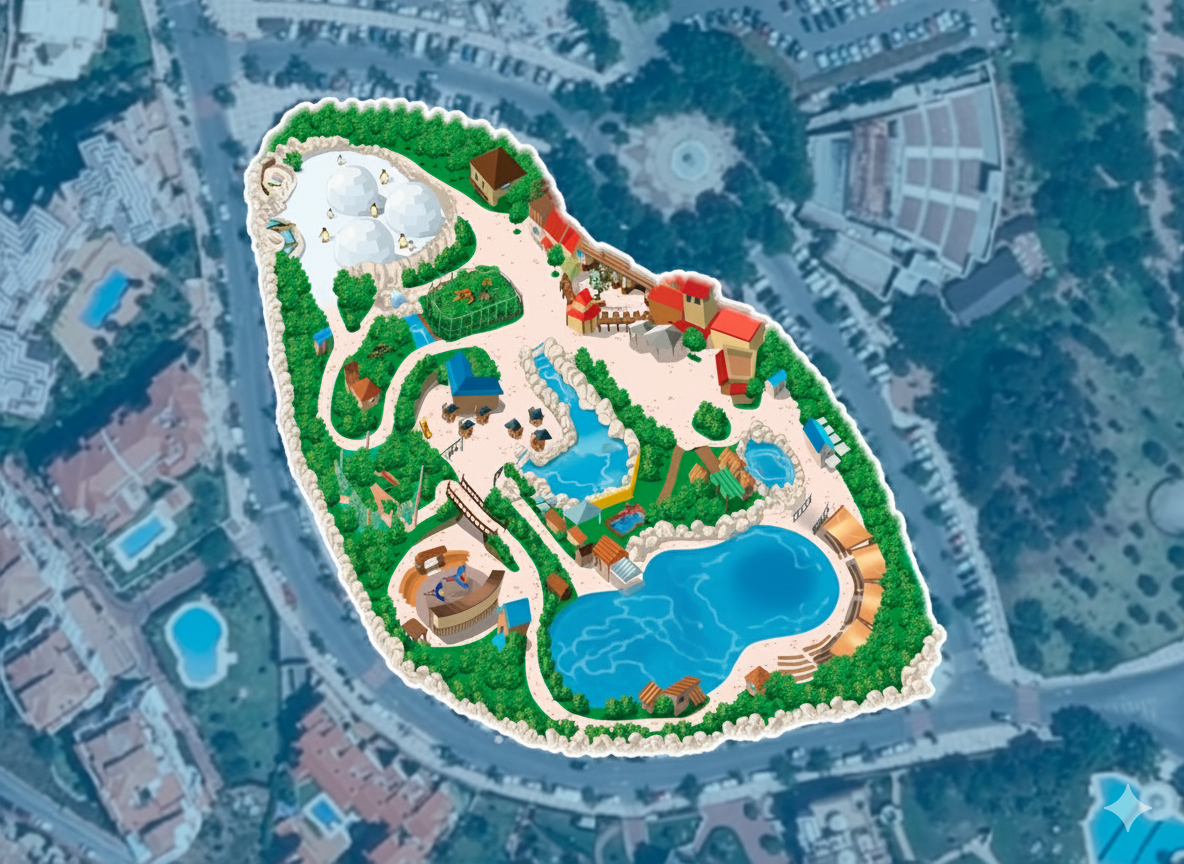Found only on the Caribbean island of Hispaniola.
This species is characterised by the size of the scales on its head, which form horn-like protuberances. Males are larger than females and have comparatively larger horns as well.
Forty days after mating, the female will dig a burrow of up to 1.5 m in which to incubate 5 to 20 eggs at a minimum of 30 degrees Celsius for 4-5 months. There is no parental care, once deposited and covered the female will remain for a few weeks to protect the eggs from predators, but then abandons them.
This species exhibits behaviours that deter both predators and competitors. These include head and neck movements intended to make the lizard appear larger and fiercer.
Some of the threats faced by this species include being preyed on by feral dogs, cats, mongooses and pigs, as well as illegal hunting for food and local trade.


















